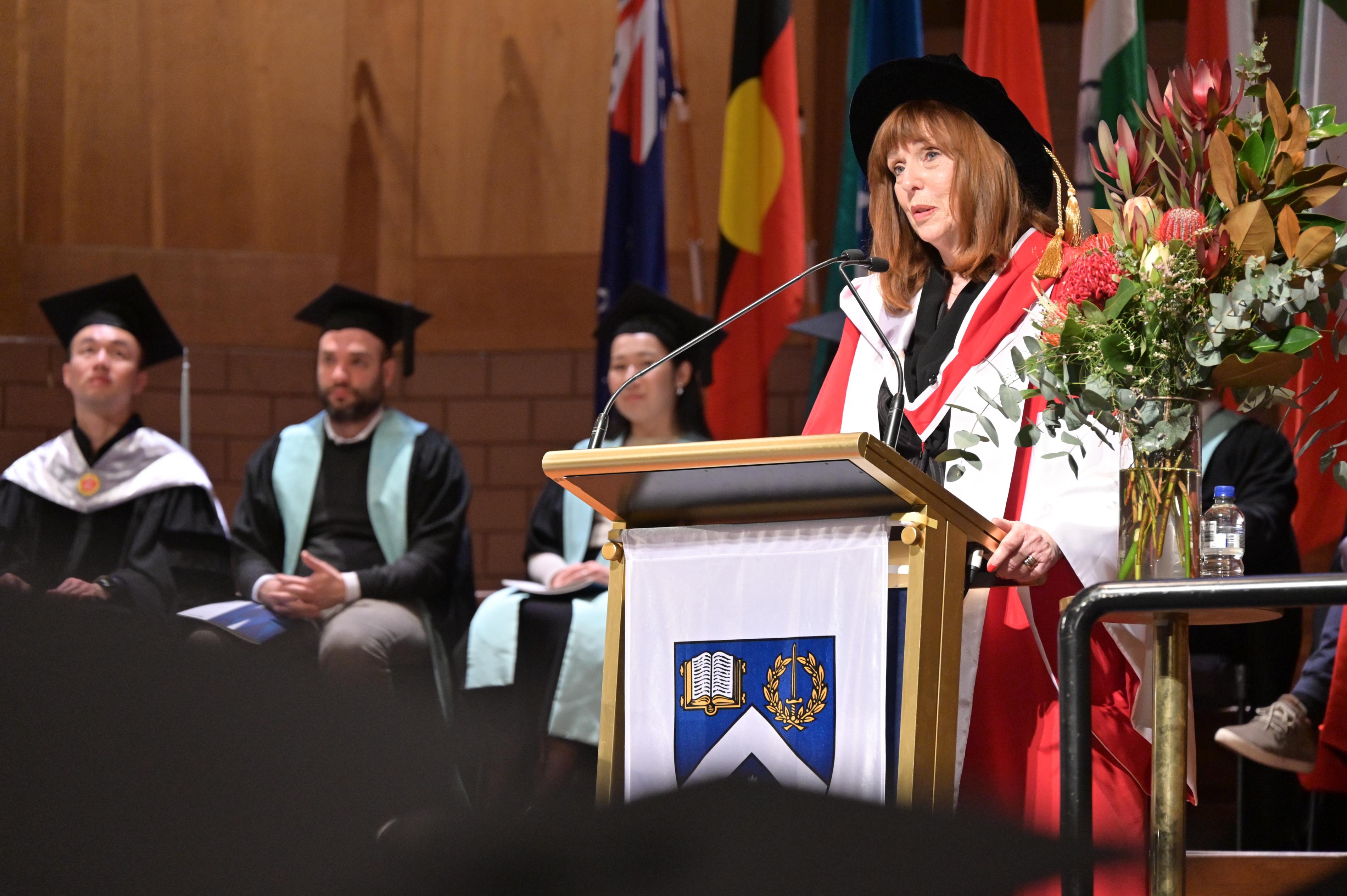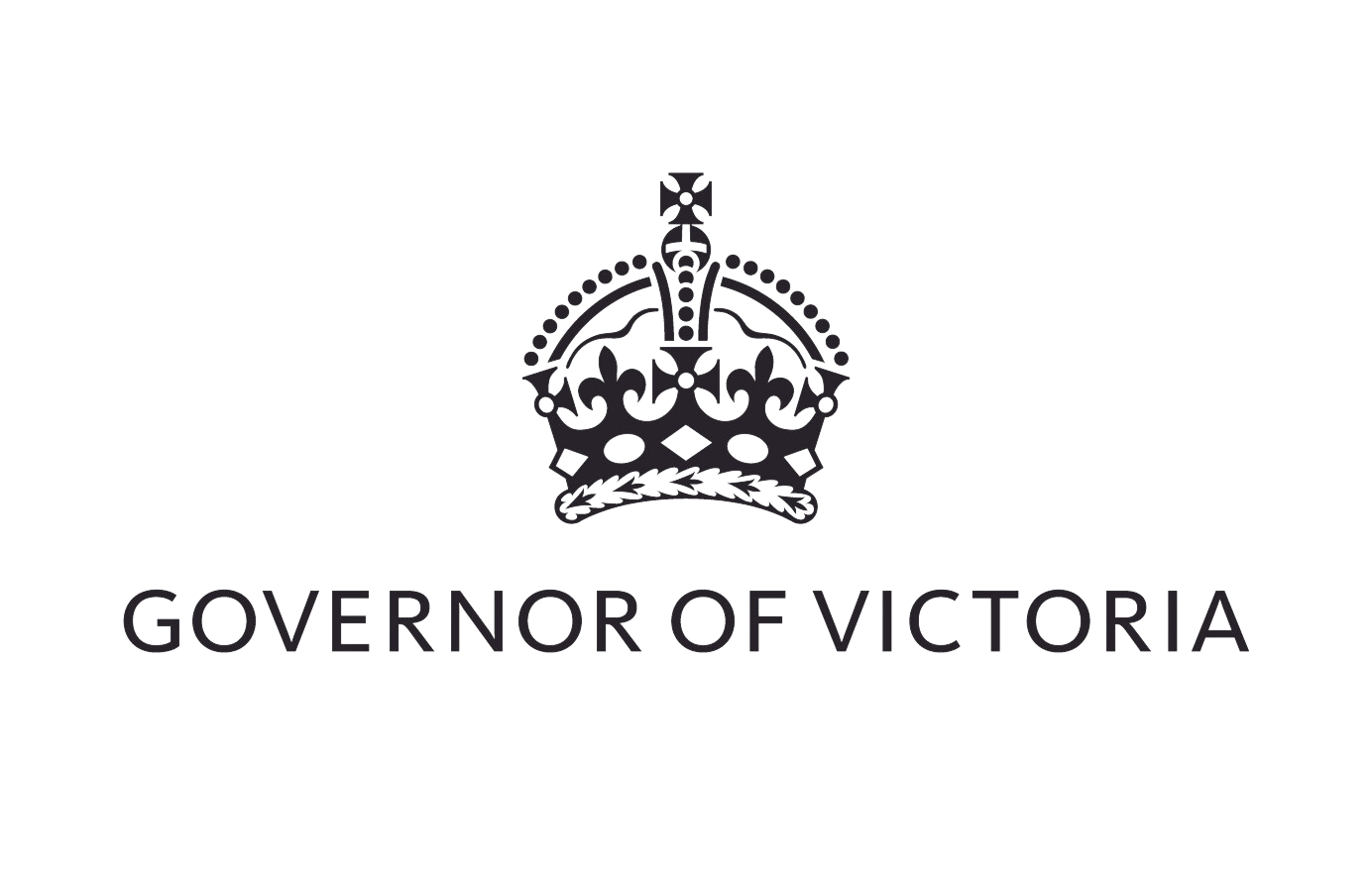
Graduation Address by the Governor of Victoria at a Monash University Graduation Ceremony.
Let me begin by acknowledging that we meet here on the unceded lands of the people of the Kulin nations and pay my respects to their elders, past and present, and acknowledge any Aboriginal or Torres Strait Islanders present today.
I begin with deep and sincere thanks to Monash University for this award, and for the honour of speaking to this graduating class.
About 48 years ago I graduated with a Bachelor of Economics with First Class Honours in an imposing (but small) stone 19th century Gothic styled hall, in a ceremony with much less celebratory flourish than is accompanying this graduation.
And since then, I have attended many more, presiding over more than 200 such ceremonies.
My colleagues at Monash gave me a book with the names of all the graduates from Monash whose degree testamurs I signed during my time as President and Vice Chancellor - it carries more than 280,000 names.
So I have heard many graduation speeches - and asked myself what can I say that hasn’t been said better before.
I know I can’t remember what was said at my first graduation ceremony, although I have a faint memory of quiet boredom.
Around the time of my first graduation, Gary Trudeau of Doonesbury fame drew a cartoon about a graduation speech - which is still telling, if you are, like me, delivering such a speech.
In fully robed splendour, the speaker begins addressing the crowd of graduates
“…platitudes, pontifications, …an inside reference …a wry joke…[to the penultimate frame of the cartoon with cheering graduates] where the speaker gives …”a call for action! A challenge for our times…”
- and the cartoon ends with the speaker’s final thought bubble “tired…seriously tired…a need for many martinis”.
Well, a glass of bubbles is possible after this - I am not expecting martinis - and I have set the hurdle I now need to clear to avoid the formula Trudeau’s cartoon so cleverly parodied in 1977.
First, good advice is rarely new and when given from a graduation stage it is inevitably not specific to you. Yet, it is advice I hope you may keep in mind - to use when circumstances arise that cause you to stop and reflect on your journey.
It may be you have your next steps worked out, alternatively you may be looking around for inspiration.
The advice I give as you leave to embark on the next stage of your journey is the same as that I would have given when you were choosing your degree and university. Pursue what you care about.
I began a Bachelor of Economics, driven as many are not only by positives (what I cared about) but negatives (what I didn’t want to be trapped in). What you care about can be read in both positive and negative ways.
I very much enjoyed what I understood economics was about from school and I thought to work for the Reserve Bank or Treasury would be good goals.
I did not want to do an economics degree to prepare me to be the high school teacher that my mother kept telling me was ‘a good job for a woman’.
There was so much I didn’t know about the possibilities of my future career and I certainly could not predict how it unfolded.
That first piece of advice (seen in the positive and the negative) remains as good as any of us can give. In the process of pursuing what you think you care about, or avoiding what you don’t care about, you will likely make what you do more bearable and sometimes more enjoyable.
Aiming for finding the joy in life is not something to sneeze at. No one guarantees you joy and success in your life, but what is usually in your control are the decisions about what you will pursue in your life and why.
Choosing how best to spend much of your life is among the biggest life decisions you make - consider it carefully because it will matter.
As should be clear this particular stage is familiar to me, as are many other such stages and ceremonies. It is not only familiar, but a symbol of the life I have loved.
I loved university from those first days, surrounded by no familiar faces in a totally new environment. Until I finished at Monash in 2023, I never left the university world of ideas and argument - with colleagues, in conferences, common rooms and committee meetings.
I cared about what was taught (I was part of the undergraduate student tumult that brought political economy to the then Economics Faculty at University of Sydney); I explored subjects I did not expect to take, including what were then entirely new subjects in what became feminist or gender studies.
I taught for a long time, big classes and small, designing new subjects, supervising student projects and theses - marking large piles of exams.
I had times (not many) when I could concentrate solely on research, and I enjoyed reading widely across fields and being periodically buried in archives reading old documents.
Life was spent with colleagues opining on the areas that were related to our expertise – as well as some more tangential - and always with an opinion not only about what was being done in my part of the university, but also how it was done.
And it was that latter focus that took me onto committees, and then into the roles that formed my career as I moved through the academic ranks to Professor, and across the leadership positions from Head of School to Deputy Vice Chancellor and finally Vice Chancellor.
You might think, surely it would be unexciting to stay for so many decades with one sector - and haven’t you been told your life will involve many different sectors and careers.
I moved within and between universities over my career, I had experiences anchored in Australia and others in places from Berkeley and Boston to Jakarta and Saigon, Mumbai and Suzhou. It didn’t matter how familiar the circumstance - with one exception, the grueling and repetitive experience of marking essays and exams - there was always something new to learn or observe.
And in this is the second piece of advice, it is in the search for the new, and its significance, that you will find the challenge that keeps you engaged and attentive to the moment. And the challenge can be found in the familiar and the unfamiliar.
As should be clear from this speech, we are all of us a bundle of contexts and possibilities. Contexts influence our choices and decisions, our possibilities are what we make of and for ourselves, gratefully acknowledging the assistance of others.
“If you can fill the unforgiving minute
With sixty seconds’ worth of distance run” (Kipling) is advice worth following for it keeps us focused on the moments, and their possibilities.
You make those moments for yourself – and in doing so you make life interesting, engaging, rewarding.
So you have two pieces of advice from me - and one more to come.
But before I conclude, I must acknowledge the very particular gratitude I feel for the opportunities that education gave me and the deep affection I feel for the colleagues with whom I worked over my career and in this great university, Monash, in which so much from all my years and experiences came together.
The ideas, the debates and arguments that I spoke about as forming my university world are one part of the passion I feel to this day for universities and for Monash. It is never only about what to do or how.
Universities (and particularly research universities) keep focused on the why - the justification in evidence, logic or principle.
In a university life, ‘because I say so’ is not really an option, you have to be able to explain to yourself, to students, colleagues, members of the governing body, why this path should be followed or that decision prevail.
And you live in a world where people are actively testing why this is so, why it might or should matter and where next we should go in our quest for knowledge and understanding. And that is always interesting and exciting.
The education that brought me to this place was and is a privilege. I would not be here today without the aspirations and sacrifices of my late parents, Don and Gwen, who did not have the opportunity to finish high school.
When I trudged off on the long bus and train journey to university and later lived as a postgrad in inner city Sydney I had loving sisters with whom to share life (and houses) and younger brothers to keep the raw and loud in view and hearing.
This leads to the final piece of advice, know who you are and understand what it should mean in and to the communities in which you find yourself. And care as much, indeed more, about knowing those around you.
You and I share a privilege, and it is this education that we are celebrating today. It gives us possibilities, opportunities, the endless and sustaining quest to continue to learn and better understand our world.
And with that one of our major aims should be to truly see and know those around us, from those we meet to those with whom we work to those we love.
“Knowing, being known….Having that is being rich, you can be generous about what’s shared…” (Stoppard, “The Real Thing”).
My hope is that I have and will continue to be able to give back to this world that has given me so much.
And I know that my love for my family and friends and particularly my husband, Glyn, son, Rhys and daughter Caitrin and my joy in them along with my daughter-in-law, Samantha and grandson, Max is a rich reward. It is to them that I owe today and so much more.
I congratulate all the graduates and wish you all the joy, passion and possibilities that lie before you.
